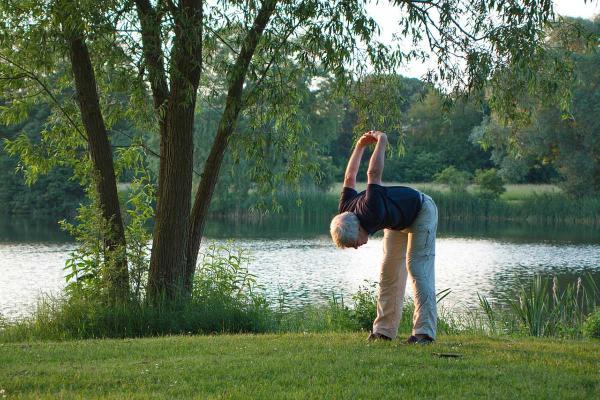People can reduce their risk of developing dementia by exercising, becoming more active and making other healthy lifestyle changes.

This is according to an updated quality standard from the National Institute for Health and Care Excellence (NICE), published on 28 June.
The new standard, which covers the prevention of dementia and the assessment, management and support of people living with the condition, says people can reduce the risk of developing some types of dementia by making lifestyle changes such as
- being more physically active
- reducing alcohol consumption
- not smoking
- improving diet
- not being overweight or obese
NICE also states that health professionals, such as physiotherapists, should be aware of the lifestyle changes that can reduce the risk of developing dementia and be able to offer advice to people about reducing this risk.
Laura Cook, East region chair of Agile, the CSP’s professional network for physiotherapists working with older people, told Frontline: ‘Physios play an important role in supporting people to age well. Lifestyle changes we would recommend to prevent a stroke or heart attack can also help to prevent dementia
‘One easy message to promote is; what’s good for your heart is good for your head.’
Promoting activities people enjoy

The new NICE standards recommend that people with dementia should be supported to choose from a range of activities to promote their wellbeing, and that these activities should be tailored to their preferences.
This advice aligns closely with the CSP’s Love activity, Hate exercise? campaign, which provides specific advice about being active with dementia.

‘Physios are ideally placed to promote wellbeing activities such as exercise, but we need to ensure that these interventions are personalised, as one size doesn’t fit all,’ Ms Cook said.
‘And physios also need to also consider how they can support wider aspects of the new standard, such as advanced care planning and care coordination.’
Gillian Leng, deputy chief executive at NICE, added that the new quality statement takes account of the fact that people with dementia often find it hard to take part in activities, as well as to engage socially and maintain their independence.
‘Understanding the activities that a person prefers and thinks are suitable and helpful, and adapting them to their strengths and needs, will make a person more likely to engage with the activities offered and therefore more likely to benefit from them,’ she explained.
‘One easy message to promote is; what’s good for your heart is good for your head.’
Find Out More
Number of subscribers: 1